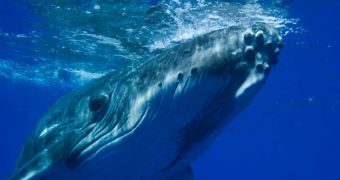Some 2,000 scientists worldwide have been working at this census of all marine interactions for the last decade, in an attempt to offer the international scientific community and the general public a thorough insight into how animals and plants interact in the marine ecosystems. The city of Valencia, in Spain, will host the World Conference on Marine Biodiversity, between the 11th and the 15th of November, where some 500 scientists will pave the way for the publishing of the census.
The document is scheduled to be released in early October of 2010 and will feature all the knowledge mankind has accumulated thus far on the world's oceans. The researchers working on the project are divided into groups, and each group has to focus its analysis on one of these areas – compiling firsts in ocean diversity, advancing technology for discovery, organizing already-existing knowledge on marine wildlife, determining the impact of human activities on ecosystems and providing solid foundations for policy-makers to make informed decisions.
"The release of the first Census in 2010 will be a milestone in science. After 10 years of new global research and information assembly by thousands of experts the world over, it will synthesize what humankind knows about the oceans, what we don't know, and what we may never know – a scientific achievement of historic proportions," said Census's International Scientific Steering Committee chair, Ian Poiner, who is also the chief executive officer of the Australian Institute of Marine Science.
Indeed, such an elaborate document will be a historic first for the scientific community and will set the basis for long-term surveys on what is happening in the depths of the oceans. As new numbers occur, they will be easily centralized and incorporated into updates. Though this may seem a bit complicated at first, it will be much easier to modify an existing document, than to fill entire archives and have all knowledge spread in countless documents and studies.

 14 DAY TRIAL //
14 DAY TRIAL //